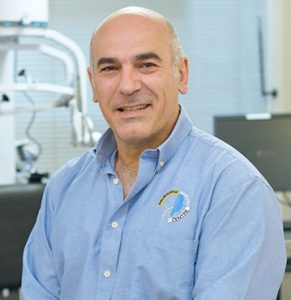Patient Information
What is Whiplash?
Whiplash is a non-medical term used to describe neck pain following an injury typically to the soft tissues of the neck (specifically ligaments, tendons, and muscles). It is caused by an abnormal motion or force applied to the neck that causes movement beyond the neck’s normal range of motion. It is usually caused by a flexion-extension motion of the neck that pulls and strains the neck muscles and ligaments.
What Is Whiplash
Whiplash is a non-medical term used to describe neck pain following an injury typically to the soft tissues of the neck (specifically ligaments, tendons, and muscles).
It is caused by an abnormal motion or force applied to the neck that causes movement beyond the neck’s normal range of motion. It is usually caused by a flexion-extension motion of the neck that pulls and strains the neck muscles and ligaments.
Whiplash sequence captured on video.
Whiplash and neck pain can stem from any type of motor vehicle accident. Rear end collisions are the most common and in this type of accident the body (trunk) is thrust forwards, this causes the natural curves of the upper back and neck to be reversed and causes an enormous ‘compression force’ on the neck structures. Please view the video below labelled ‘Normal neck motion’ and observe how the neck vertebrae move on each other in a smooth gliding motion.
Normal neck motion.
In contrast, view the video titled ‘Pinch’ and view how a rear end collision can cause pinching and compression of joint surfaces. The resulting compression/pinching results in ‘pain’. Of course this excessive neck movement also strains muscles, ligament and tendons in the neck, all resulting in pain and muscle guarding/spasm. With the passage of time the pathology (tissue damage) will heal, but the pain can be everlasting. The pain is often due to the muscle weakness that develops over time from not using your neck properly. Our program at the Melbourne Whiplash Centre, can identify which muscles are not functioning properly, and which muscles have been damaged due to your injury or accident. Our rehabilitation program then goes about correcting this weakness, improving your neck function resulting typically in a reduction in your pain and symptoms.
Pinch.
Whiplash happens in motor vehicle accidents, sporting activities, accidental falls, and physical assaults.
If you are suffering from Whiplash or Whiplash type symptoms (sore neck, headache, jaw pain, weak neck, a heavy head), then contact our team at the Melbourne Whiplash Centre for a detailed evaluation to gain relief of your symptoms on (03) 9131 0712.
Do You Suffer From a Heavy Head?
A common consequence of car accidents or trauma to the neck results in both pain and weakness of the neck muscles. These symptoms often present to the patient as a heavy head, and what we call ‘heavy head syndrome’. Many of our patients who suffer from this condition respond well to our neck strengthening program. If you suffer from a heavy head, contact us to find out how we can help you.
Whiplash Symptoms
Whiplash symptoms can vary enormously. This will depend on the type of accident, the speed at impact, car type and the position of your neck and body at impact. A typical list of symptoms may include:
- Neck, upper back or shoulder blade pain
- Pins and needles or numbness
- Headache
- A heavy head
- Arm pain or weakness
- Nausea
- Jaw pain
Whiplash Advice
If you have been involved in a motor vehicle accident and are experiencing any symptoms, we suggest you make an appointment with your GP, if symptoms are severe you may need to go straight to an Emergency Department. If symptoms are less severe, we recommend you visit your local Physiotherapist for an initial assessment and to be guided through an acute phase management program. Click ‘Learn More’ below to view the guidelines we follow at the Melbourne Whiplash Centre.
Whiplash Advice
What to do in the initial weeks following a whiplash injury
At the Melbourne Whiplash centre we follow a strict post trauma protocol that gives our patients the best possible chance to avoid long term consequences, these include:
Stage one: Inflammatory stage – initial 1-4 days post trauma.
- As a general guide, if at the time of impact you felt neck pain almost immediately then you should seek medical advice re imaging. If however, as is very typical, symptoms (usually neck/arm pain) commenced a few hours to a day post trauma then it is strongly recommended that you have a restful few days. This may mean taking a few days off work to take the weight off your head/neck and shoulders. The best way to do this is to lie flat in bed, not upright on the couch. During this time perform simple, gentle neck rotations, i.e. turn slowly to look over one shoulder-then the other. This can be performed up to 10 times on the hour. By all means get up regularly and do basic chores around the home, but no heavy lifting or lifting overhead initially, until symptoms start to settle. Also include 6-10 hourly shoulder shrugs and circles and basic arm/shoulder movements. We strongly recommend you see a facility, such as a Physio clinic, that sees and treats a lot of whiplash type patients.
- Further to this initial routine we recommend regular walks of say 15-20 minutes duration, 2-3 times per day, or as tolerated.
- REFRAIN from sport of moderate activity during this acute period and certainly NO CONTACT SPORTS until symptoms have well and truly settled for over 48 hours – or ideally cleared by your therapist or GP.
Stage Two: Gradual return to full activity (day 4 to 3-6 weeks)
- This phase may extend to 3-6 weeks post whiplash trauma. At this time manual therapy is most appropriate. This may consist of: soft tissue massage, trigger point therapy, joint mobilisations or manipulations, heat, stretches and simple strengthening exercises.
If Symptoms persist beyond 6 -10 weeks
- The latest evidence suggests 50% of people following Whiplash will have ongoing symptoms past 3 months. If this is the case then neck strengthening becomes an important component to the road back to full recovery. The staff at the Melbourne Whiplash Centre will design a specific and personalised neck rehabilitation program based on your assessment findings. To find out more, call now to talk to one of our experienced Whiplash practitioners.
Download the Whiplash & Associated Disorders PDF »
If you are suffering from Whiplash or Whiplash type symptoms (sore neck, headache, jaw pain, weak neck, a heavy head), then contact our team at the Melbourne Whiplash Centre for a detailed evaluation to gain relief of your symptoms. Call us now on: 03 9131 0712.
Assessment & Treatment
The Initial Assessment is conducted by a qualified Physiotherapist. Firstly we discuss how your problem came about, and how it has affected your lifestyle. Then we will ask you specific questions about your pattern of pain and how it impacts on your day to day activities. Finally there is an Objective Assessment using the Multi Cervical Unit to measure the true mobility and strength of your neck.
Assessment & Treatment
The Initial Assessment is conducted by a qualified Physiotherapist. Firstly we discuss how your problem came about, and how it has affected your lifestyle. Then we will ask you specific questions about your pattern of pain and how it impacts on your day to day activities. Finally there is an Objective Assessment using the Multi Cervical Unit to measure the true mobility and strength of your neck.
The values you demonstrate will then be compared to values expected of a healthy individual. If a deficit is found from your initial evaluation, then a program is designed to rectify the problem. The rehabilitation program is based upon performing strength and conditioning exercises isolated to the neck and targeting the muscles found to be weak. This is different to general body rehabilitation, such as gym workouts or hydrotherapy programs. Our programs isolate and target the muscles found to be weak from our initial evaluation.
There is increased evidence to support the role of strengthening in treating neck pain. You can view the research in the FAQ section on this page.
The initial evaluation and all re-evaluations are performed by members of our Physiotherapy team. A Physio is also responsible for writing your program and overseeing your program and progress. The rehabilitation sessions are performed on the MCU and may be supervised by any one of our trained staff (Physiotherapists, Myotherapists or Physio Aides).
The aim of the program is simple – to rectify any deficits identified in the Initial Assessment. Once these areas have improved to a “normal” level (what would be expected of a healthy neck) you will be discharged, perhaps with some home exercises or we progress you back into something you enjoy such as: gym, Pilates, swimming, yoga or perhaps tennis or golf to maintain your mobility and strength. Once you achieve these target strength goals, many of our patients report a significant improvement in their symptoms.
You do not have to suffer neck pain any longer-call us now on (03) 9131 0712 to schedule a time for a detailed evaluation.
Car Accidents
What to do if you recently had a car accident?
If you have recently been involved in a car accident you should consult your local GP/Doctor to see if any scans or diagnostic imaging is required. Please bear in mind that around 50% of all Whiplash injuries fully recover with time, appropriate treatment and management from a qualified health practitioner (read supporting article).
We find many of the patients who do not respond within the first 3 months are suitable candidates for our neck rehabilitation program. The neck rehabilitation program we offer is exclusive to the MWC and over 100 clinics around the world have modeled their facilities on the technology and techniques we developed at our clinic here in Melbourne.
To view our acute management protocol following a whiplash trauma Click Here
Frequently Asked Questions
Once we have conducted our detailed 2-hour objective examination, we will know if you are suitable for our program. The assessment is a functional assessment of your neck. Most importantly, it provides us with the ability of your neck muscles to generate force. The head alone weighs between 8-10lb’s ( 4.5kg’s) and many patients tell us they struggle to hold their heads up, what we call ‘Heavy Head Syndrome’. Patients are suitable for our neck rehab program if we find a weak set of neck muscles. And if we can make them stronger on our program, then the majority of our patients feel significantly better. However, if we find your neck muscles are within expected values, don’t worry. Even though we may not put you on our rehab program, we may still be able to help you thanks to the experience within our team of Physiotherapists.
If you have recently suffered a motor vehicle accident, there is a defined ‘acute management protocol’ that should be followed to minimise the risk of symptom exacerbation. We recommend you contact our centre on: (03) 9131 0712 to see one of our staff who have advanced skills in the assessment and treatment of Acute Whiplash.
However, if the pain is severe, we recommend you consult your local doctor for an initial examination and appropriate diagnostic testing prior to your assessment at The Melbourne Whiplash Centre.
The latest evidence suggests 50% of people following Whiplash will have ongoing symptoms past 3 months. If this is the case then neck strengthening becomes an important component to the road back to full recovery. The staff at the Melbourne Whiplash Centre will design a specific and personalised neck rehabilitation program based on your assessment findings. To find out more, call now to talk to one of our experienced Whiplash practitioners (read supporting article)
Traditionally, the commonly used term “Whiplash” describes an injury to the neck whereby it has sustained a sudden acceleration then deceleration force – the head is “whipped” back and forth on the neck. The latest research on whiplash indicates that typically in a rear end collision the body moves forward rapidly leaving the head behind. This causes a “shearing” motion in the neck that can lead to both bony and soft tissue injuries. It is most common in motor car accidents, especially rear end collisions, but there are many other causes such as sporting accidents or blows to the head.
The symptoms associated with whiplash can vary, and may include headaches, neck or arm pain, dizziness, fatigue, difficulty sleeping, inability to concentrate, blurred vision, or a feeling that the head has to be supported (what we call “heavy head syndrome”).
As most Whiplash injuries damage the soft tissues (muscles and ligaments), this is unlikely to show up on a standard X-ray. However, an MRI may be of more value, and your GP is best to discuss and arrange this with you. The severity of the initial symptoms should be considered when determining the most appropriate scan. Muscles that have been damaged and weakened will not necessarily show up on these scans once symptoms become chronic, that’s when our neck evaluation can provide great insight into which neck muscles are working correctly and which ones have been impacted due to the pain and trauma our patients have been suffering.
The majority of patients entering our facility are suffering from weakened neck muscles. The trauma results in pain, the pain results in dysfunction, i.e. it hurts so you stop using your neck properly and the muscles weaken over time. What we have found is that as we strengthen patient’s neck muscles, many symptoms are resolved or settle considerably. Pain medication can be reduced, and many activities can be resumed.
Strengthening has been used previously with other joints such as the lower back, the knees, ankles and shoulders, but we are now able to strengthen the neck muscles. It is common sense – if your muscles are too weak, strengthening them can only improve your function.
One of the most common symptoms of someone suffering from weak neck muscles is a heavy head. What we call, ‘Heavy Head Syndrome’. People suffering from this syndrome have an excellent success rate with our program. So if your neck feels heavy or if you struggle to hold it up at times, then call us now on (03) 9131 0712 and let us help you.
An assessment involves 2 one-hour sessions with a fully qualified Physiotherapist on the Multi-Cervical Unit. The assessment involves the accurate measurement of neck movement and strength, and investigates how this condition affects the patient’s daily life. These measures are compared to so-called “normal” values, and a treatment program is customized for the patient. Each patient will receive a comprehensive computer-generated report detailing the results of their assessment.
Each treatment program is specifically designed according to the results of the assessment. The core of the program generally involves 3 x 30 minute strengthening sessions per week, with a MWC team member trained in the application of the Multi-Cervical-Unit (one of our Physio’s or Physio Aides). The program is designed to strengthen the muscles of the neck, and the patient is re-assessed after each three-week phase to measure progress. Other treatments may be prescribed as required. The average treatment phase is 6 – 9 weeks, depending upon the nature of the problem.
At the end of every 9 treatment sessions, the patient will be re-assessed, and their results again compared to “normal” values, and the values obtained in the initial assessment. When the results of testing match the expected values, the patient is discharged, and at this point many of our clients experience significant reduction in their symptoms.
No. As the neck muscles becomes stronger and less symptomatic, patients will begin to do more. As they start to do more housework, resume playing sport, or lifting the kids their neck muscles will be getting a “mini-workout”. We are returning the neck muscles to normal strength levels – normal activity should maintain this. Our follow up research suggests that at 6 months and at 2 years our patients maintain their improvements in strength and state they are still significantly better than when they commenced our program.
Yes. The program is devised and overseen by a Physiotherapist or Physio aide who has undergone training on the neck machine. Strengthening has long been considered an essential part of rehabilitation for many other parts of the body – it is only now that we have the technology to accurately assess and treat the neck in this way.
Our Director, Physiotherapist Robert De Nardis was instrumental in the design the technology and also developed the clinical application of the neck machine, called ‘The Melbourne Protocol’. This protocol has been used in well over 100 Whiplash clinics around the world and has even been used by the UK Air-force to help their Fast Jet Fighter Pilots recover from neck issues.
A detailed two hour assessment at our Centre provides you with a comprehensive functional report of your neck. The Multi-Cervical Unit objectively assesses the strength and range of motion of your neck. Further, our sophisticated computer analysis compares your results to expected values.
Tests such as X-Rays or MRI involve a static analysis of your neck bones and tissues. The Multi-Cervical Unit offers a dynamic functional assessment – never before has it been possible to accurately define where the weakness is in your neck. Muscle weakness and imbalance leads to pain and dysfunction. We can define this and correct for this.
Our research indicates that a stronger neck leads to increased mobility and function with a reduction in pain and symptoms. Many patients attending our facility feel significant improvement after only 3-4 weeks of treatment (9 sessions). Our outcome data shows that our average patient has had symptoms for over 5 years and over 80% of our clients say they have improved. With over 60% of patients stating they have completely recovered or are significantly better after only 18 sessions.
No, not if you are paying for your assessment privately. If your treatment is covered by TAC, Workers Compensation or a Third Party please call in advance with your insurance details and our admin team will confirm your details and arrange an appointment for you.
Yes, if you have Private Health cover your consultations will be made with one of our Physio team members so that you can claim from your health fund.
Contact us on (03) 9131 0712 to make a booking to obtain a detailed, objective functional assessment of your neck.
This article summarises the history of the Multi Cervical Unit, including the development of The Melbourne Protocol, research showing the benefits of the program and details the program itself
A Twelve-Item Symptom Intensity Rating Scale for Cervical Spine Dysfunction
This study showed the Symptom Intensity Rating Scale (used as part of the assessment/re-assessment at the Melbourne Whiplash Centre) is a reliable tool
Predicting Short-Term Response and Non-Response to Neck Strengthening Exercise for Chronic Neck Pain
This study showed characteristics of a responder on the Multi Cervical Unit (as used at the Melbourne Whiplash Centre) which is useful when designing and implementing a rehab program
This study showed benefits of 12 weeks of physiotherapist-led neck specific exercise in those with chronic Whiplash Associated Disorder
Neck-specific exercise may reduce radiating pain and signs of neuro
This study showed benefits of 12 weeks of neck-specific exercise on the arm symptoms and neurological signs in those with chronic Whiplash Associated Disorder
Practical Management of Whiplash: A Guide For Patients
A useful guideline in Question/Answer format covering common questions asked following the early stages of a Whiplash Injury
This study showed the benefits of 3 months of neck-specific exercises in neck muscle interactions and pain reduction in those with chronic Whiplash Associated Disorder
This study showed significant improvements in terms of neck disability and quality of life in those with chronic Whiplash Associated Disorder through 3 months of neck-specific exercise
This study showed significant improvements in terms of neck pain and disability in those performing 12 months of strength and endurance neck specific exercise in those with chronic non-specific neck pain
Evaluation of cervical range of motion and isometric strength: reliability and validity
The Multi-Cervical Unit has been found to be reliable and valid for testing the cervical active range of motion and isometric neck muscle strength for both normal and patient subjects.
Meet our team
Our experienced and qualified Physiotherapists are extensively trained in the diagnosis and treatment of acute and chronic neck pain. Our friendly Physio Aides also assist patients during ongoing sessions during their exercise programs.

Robert De Nardis - Director / Senior Consultant

Robert De Nardis graduated as a Physiotherapist in 1992, he has worked with many state and national sporting teams over the years, and in 2000 he opened the Melbourne Whiplash Centre. The facility utilises the Multi Cervical Unit (MCU) – a unique and revolutionary technology that both assesses for neck weakness and strengthens necks to achieve clinical success. Robert was instrumental in designing the new look MCU and also developed the clinical operating system known as The Melbourne protocol (TMP). TMP is used in over 100 clinics around the world, and Robert has trained the majority of them in his unique treatment techniques.
Robert is heavily involved in researching the effectiveness of the MCU with publications involving La Trobe and Monash Universities. Additionally, Robert was an inaugural member of the International Whiplash taskforce and has presented several times on the International Stage on Whiplash and its associated disorders.
His career highlight was consulting for the UK Airforce to help reduce neck issues with their fast jet fighter pilots.
Robert remains an active member of our team here and is responsible for training new team members on this technology.

Brandon Kam - Senior Consultant / MCU Consultant

Brandon is our Clinical Manager of Physiotherapy. Brandon has been involved with assessing and treating Whiplash patients for over 15 years. He also treats headaches and jaw pain in all age groups. His team involvement includes the Sandringham Football Club, Sandringham Sabres Basketball team and Tennis Australia. He utilises Clinical Pilates and Dry Needling for the treatment of musculoskeletal pain.

Michael Shilson Josling - Consultant Physiotherapist

Michael graduated from the University of Sydney in 1994. He has special interest in treating patients with chronic neck pain and headaches and is a Level 3 Accredited Watson Headache practitioner, having previously worked at the Melbourne Headache Centre, Primary Healthcare and Parramatta Allied Health. Michael is very experienced in taking patients through the MCU and utilises Clinical Pilates and Dry Needling for the treatment of musculoskeletal pain.


Physiotherapist

Andy graduated as a physiotherapist from the University of Sydney in 2015. He has completed the Watson Headache level 1 course and has an interest in the treatment of chronic neck pain and the lower limb and hips.
He has worked with a variety of sporting teams since he graduated including Sandringham Sabres, Waverly Park Hawks and Trinity Grammar Soccer.
In his spare time Andy loves to garden and keep fit.


